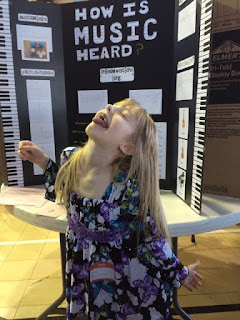The final quarter of presentations will incorporate all 3 of our previous quarterly focuses:
- Connecting with the audience
- Articulation
- Style and expression
Week 19 (March 23): "Tell us about your name." Does it have a meaning? Why did your parents choose that name for you? What is its origin? Do you have any nicknames, and who calls you by them?
Week 20 (March 30): "How To." Tell us how to do something assuming that the audience doesn't know the most basic steps. Organize into 4 main steps. It can be any topic. Examples: "How to plant a seed", "How to build a lego tower", "How to check out a library book", "How to set the table." If applicable, feel free to bring items that help demonstrate while still using strong verbs to explain, i.e., "Stack the blocks one on top of the other" vs. "Do this, then that"
Week 21 (April 6): "Show and Tell a Piece of Art" (either famous work or homemade). Tell what period it is from (or resembles). Who is the artist? What techniques and materials were used? What is the subject? What was the artist's motivation?
Week 22 (April 13): "Instrument of the Orchestra" Choose an instrument from the orchestra that you'd like to learn more about or that you'd like to play. What is its name? What group does it belong to? (brass, strings, woodwinds, or percussion). What sound does it make? How do you play it? Feel free to bring visual and audio aids--draw a picture, find a picture in a book, find a song featuring the instrument and play a piece of it, or even bring the instrument itself if you have access to that.
Week 23 (April 20): "Favorite part of CC" Tell us what you like about CC. It can be several things from any of the elements: Christian, Classical, Community. Is there a favorite Fine Arts or Science focus? Favorite piece of memory work?
Week 24 (April 27): "Summer Plans" Tell us some things that you're looking forward to about the summer. Going on a trip? Playing outside? Swim lessons? Family reunion? Give us a glimpse of your summer months.







